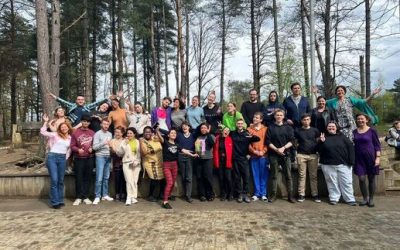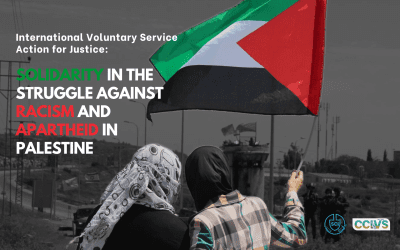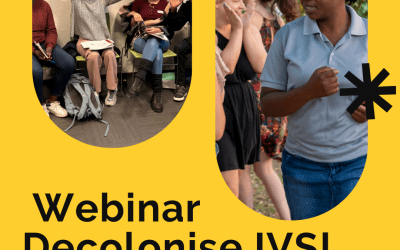Climate protection and class struggle! Climate beyond Classism!
by SCI Germany
In order to overcome the climate crisis, we need big social movements that demand a massive change in the way that we do economics and politics.
People with lower incomes and low educational qualifications are strongly underrepresented in the climate movement. Yet it is precisely the economically weak and working class people who are most affected by the impacts of the climate crisis – both locally and globally.
Several organisations and activist groups across Europe, both in the climate and in the international voluntary service movements, have started changing their structures to be more inclusive in terms of class. These structural changes and tools need to be shared.
In September 2021, SCI Germany together with trainers from Bildungskollektiv für utopischen Wandel (BuWa) e.V. and 10 partner organisations from all over Europe, organised the EU Erasmus+ funded youth workers activity “Climate Beyond Classism” in Sonthofen, Germany. Twenty-five youth workers, volunteers and climate activists participated in this project.
Objectives of the activity were:
- to discuss and share knowledge and worst practices on structures that exclude people from the climate and international volunteering movements based on their social class,
- to share approaches, institutional structures and non-formal education methods of including all people regardless of social class in activities of the climate and international volunteering movement and empowering specifically people from economically weak and working class backgrounds to become active citizens,
- to deepen and rise knowledge of the participants as multipliers on the topics of Climate Justice and Classism,
- to raise awareness among staff and volunteers of climate and international voluntary service organisations around classism and class privilege as well as to strongly disseminate this awareness through workshops with other stakeholders before and after the seminar,
- to create more and stronger alliances and solidarity between the peace and volunteering movement, the social justice and the climate justice movement,
- to create a manual on classism for youth workers,
- to network between the organisations involved in this project,
- to come up with new volunteering projects on the topic of social inclusivity in the climate justice movement.
Partner Organisations:
VCV Serbia, P.E.C.O. Italia, ATIC Romania, M.E.R.L. Estonia, Change Multipliers Greece, RELEARN Sweden, SCI Catalonia, WWF Austria, SCI International Secretariat Belgium
Climate Beyond Classism Manual:
As an outcome of the seminar, the organisers have published the handbook “Climate beyond Classism” for youth and educational work. The handbook can be downloaded here.
Explore more news
Call for applications: ‘Diverse Voices, Common Needs: Building Peaceful Communities Together
Training Course “Diverse Voices, Common Needs: Building Peaceful Communities Together” for youth workers, peace activists, leaders, volunteers 📍 Antwerp, Belgium, 📅 12-19 November 2024 CALL FOR PARTICIPANTS ✔ Are you a resident of Albania, Belgium, Bulgaria, Germany, Hungary, Ireland, Kosovo, North Macedonia, Poland, Serbia or Spain? ✔ Are you interested in the topics of peace, diversity and...
Palestine Online Conference: Solidarity in the Struggle Against Racism
On the 17th of July, CCIVS and SCI organised a conference about Palestine. We had the chance to hear personal stories, learn more about Palestine and what we can do to foster solidarity and end racism, apartheid and the genocide in Palestine. The speakers were: Ratherford Mwaruta, CCIVS President and activist. Dr Husam S. Zomlot, Ambassador of Palestine to the United Kingdom and academic engaged...
What’s up in the Decolonise IVS project?
The project Decolonise International Voluntary Service has been running for 2 years. Join the webinar on July 9th at 2 PM CEST to learn more about the project and its outcomes.




